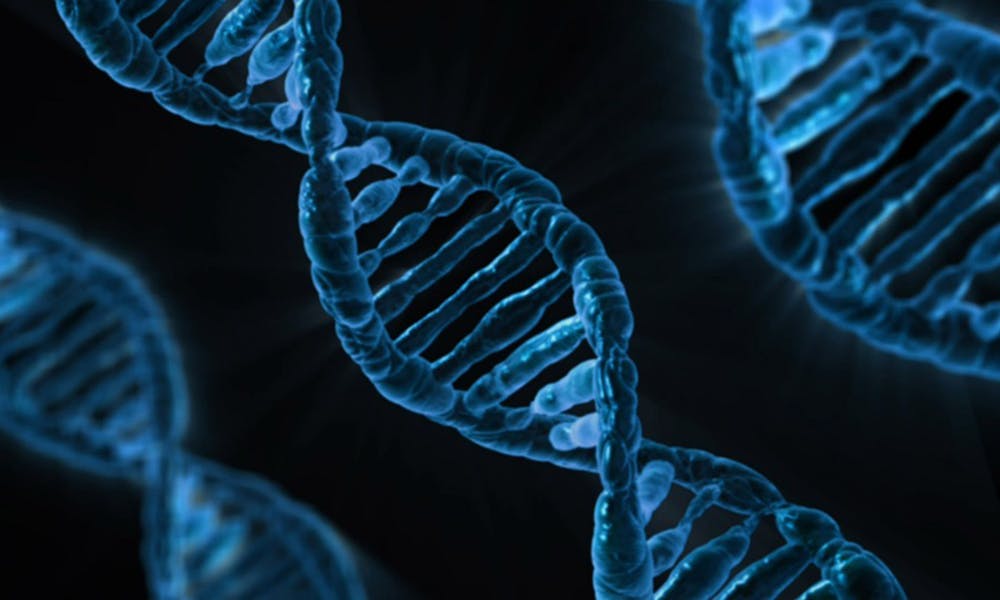During one late night bonding session with my hallmates, one of them revealed to the group that they took a DNA test and discovered more about their background. Intrigued, I sought out to buy one of the kits for myself. The major players in this industry are Ancestry.com and 23andMe; both offer DNA tests that can shed light on your lineage as well as an optional health risks assessment.
Now, I knew that these tests are very expensive. For 23andMe, the basic ancestry service costs $99 and the Health + Ancestry service costs $199. I ended up choosing to go with 23andMe based on positive online reviews. Also, this was the brand my hallmate had used. Luckily, for me, there was a special Black Friday sale, so I snatched up the kit and waited for it to arrive at Amazon@Penn.
Before doing the spit-test that is required, I knew that I was going to be Latino. My parents are from Ecuador, and I imagined that my ancestry composition would show a high concentration of Latino ancestry. I never questioned my background because that was never a conversation I had with my family. After countless times of spitting in my tube, I entered my registration code to track my kit, sealed up the test tube in the box, and dropped off my sample at the post office.
This “waiting game” was an agonizing process. But even though I was excited to receive my results, I knew that the outcome wouldn’t dramatically change who I was. Whatever 23andMe had in store, my upbringing is already set in stone.
While growing up, the most dominant cultures in my apartment complex and in my community were Guatemalan and Mexican. I was immersed in the beauty of the Latin American diaspora. I do not label or identify as a member of these backgrounds. However, these are the cultures I have known myself to connect most naturally with.

My results from the test were as follows: 46.5 percent European, 44.6 percent Native American, 2.6 percent Sub-Saharan African, 0.2 percent Western Asian & North African, and 6.1 percent Unassigned.
SEE MORE FROM CARLOS ARIAS VIVAS:
To be completely honest, these results were not shocking. After learning the history of colonization and the Slave Trade, it makes sense why my ancestry composition has a mixture of European, African, and Indigenous makeup. I am 46.5 percent European, but that doesn’t make me “white.” It doesn’t allow me to claim “white privilege” and have it easier like most Caucasian individuals do since I am not “white passing.” I am 2.6 percent Sub-Saharan African, but that doesn’t make me “black.” It doesn’t allow me to claim all the struggles an African American in the United States goes through.

I am what I choose to identify myself as, which is a first-generation, low-income, Latinx male. All of these identities play an integral role in how I navigate my next four years at Penn, a PWI (Predominantly White Institution) that is, like all Ivy League schools, filled with an abundance of wealth.
Wharton senior Artemis Tiburcio also took the 23andMe ancestry test and said, “Although the results were different from my expectations, it’s interesting to witness the complexity behind my own DNA. Regardless, it doesn’t change my identification as Afro-Latinx.”
Ancestry tests allow for the opportunity to explore your maternal and paternal lineage through conversations with your family and any matches found through the DNA Relatives featured on 23andMe.
While my “little experiment” was fun, cool, and expensive, I learned a lot about myself through self-reflection. The background in which I grew up in is so important to me and makes me the person I am today. All the experiences, friends, and cultures I have interacted with since my youth all help me shape the identities I choose to represent to the world. Ultimately, if you decide to take an ancestry test, it’s up to you to decide how seriously you want to take your results.
How it affects your identity moving forward is your choice.

CARLOS ARIAS VIVAS is a College freshman from Stamford, Conn., studying communication. His email address is cariasv@sas.upenn.edu.



